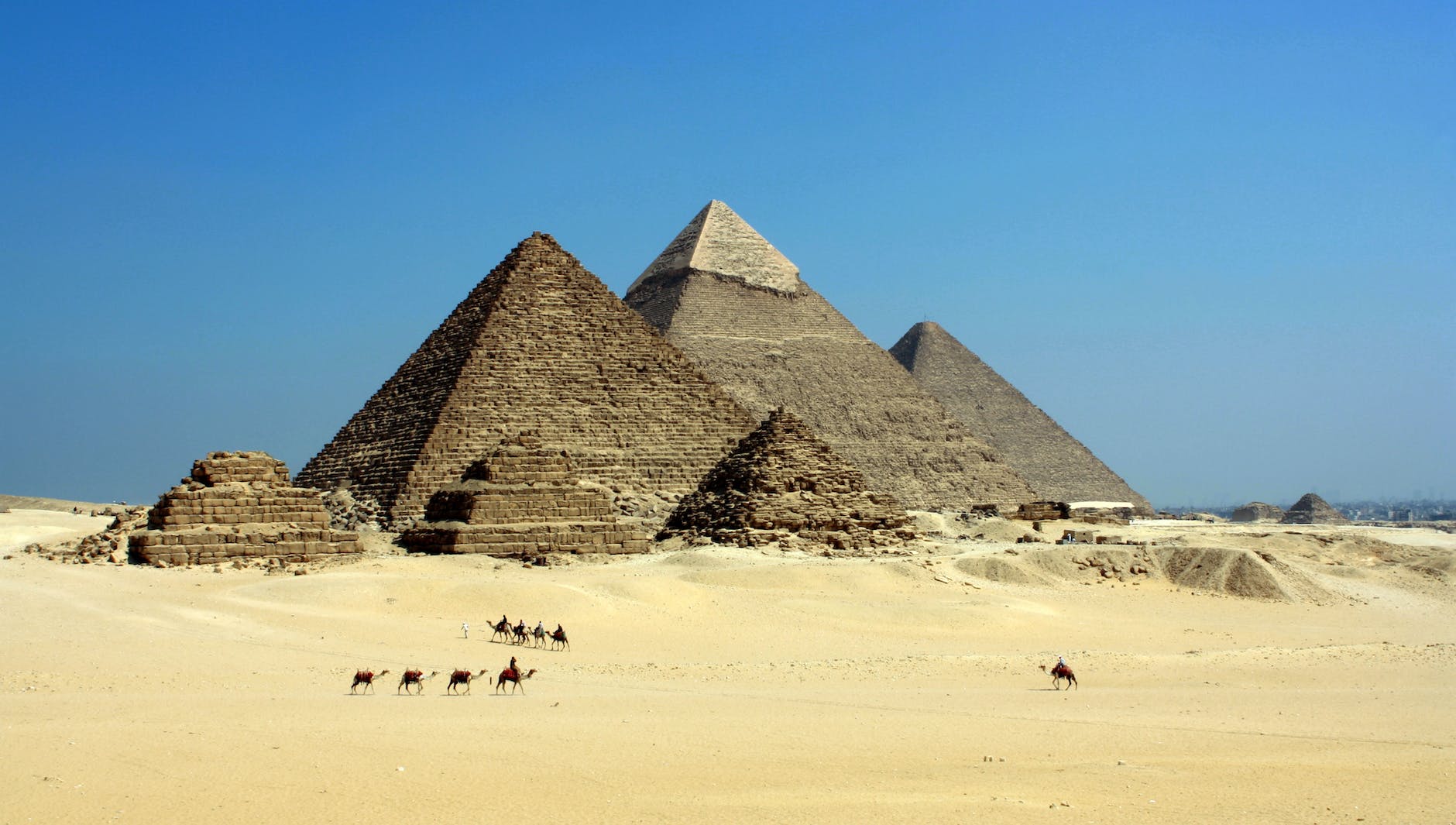
Egypt
Looking to embark on a memorable adventure to Egypt? Before you start packing your bags, it’s essential to consider a few important factors. By understanding the country’s history, geography, weather, safety concerns, culture, and must-visit places, you can ensure a smooth and enjoyable trip. This article will guide you through these crucial factors, helping you make the most of your tour in Egypt.
Understanding Egypt: A Brief Overview
The Rich History of Egypt
Egypt is a land steeped in ancient history, with its roots tracing back to more than 4,000 years ago. From the magnificent pyramids of Giza to the stunning temples of Luxor, this country is a treasure trove of historical wonders. Exploring the ancient Egyptian civilization can provide a profound insight into the birthplace of human civilization.
One cannot help but be in awe of the incredible achievements of the ancient Egyptians. Their advanced knowledge in mathematics, engineering, and architecture allowed them to construct monumental structures that still stand tall today. The pyramids, in particular, continue to captivate the imagination of people from all over the world. These colossal tombs were built as a final resting place for the pharaohs, who were believed to be divine rulers.
But Egypt’s history is not just about the pharaohs and their grand monuments. It is also a story of conquests and empires, with the likes of Alexander the Great and Cleopatra leaving their mark on this ancient land. The influence of these foreign powers can be seen in the art, architecture, and even the language of Egypt.
Egypt’s Unique Geography
Located in northeastern Africa, Egypt boasts diverse landscapes. The mighty Nile River, the longest river in the world, meanders through the country, providing lush greenery along its banks amidst the vast desert. From the coastal Mediterranean region to the captivating Red Sea, Egypt’s geography offers a blend of scenic beauty and natural wonders.
The Nile River has been the lifeblood of Egypt for thousands of years. Its annual flooding brought fertile soil, allowing the ancient Egyptians to cultivate crops and sustain their civilization. The river also served as a vital transportation route, facilitating trade and communication between different regions of the country.
Aside from the Nile, Egypt is also home to other geographical marvels. The Sinai Peninsula, located in the northeastern part of the country, is a stunning land of rugged mountains and pristine beaches. It is a popular destination for nature lovers and adventure seekers, offering activities such as hiking, diving, and camel trekking.
Furthermore, Egypt’s coastal regions are renowned for their breathtaking beauty. The Mediterranean coastline boasts picturesque beaches and charming seaside towns, while the Red Sea coast is a paradise for underwater enthusiasts, with its vibrant coral reefs and diverse marine life.
The Ideal Time to Visit Egypt
Weather and Climate Considerations
Egypt experiences predominantly desert climate with hot summers and mild winters. The best time to visit is during the cooler months from October to April when temperatures are more comfortable, and you can explore outdoor attractions without scorching heat. However, if you’re a fan of warm weather, the summer months offer their own unique charm.
The cooler months in Egypt provide a respite from the scorching heat that dominates the country for the majority of the year. During this time, temperatures range from around 20 to 30 degrees Celsius (68 to 86 degrees Fahrenheit), making it pleasant for outdoor activities such as visiting the ancient temples of Luxor or exploring the bustling streets of Cairo. The evenings are cooler, allowing you to enjoy a leisurely stroll along the Nile River or indulge in a traditional Egyptian dinner under the stars.
On the other hand, if you enjoy the warmth and don’t mind the higher temperatures, visiting Egypt during the summer months can be a unique experience. From May to September, the mercury rises, and temperatures can reach up to 40 degrees Celsius (104 degrees Fahrenheit) or even higher in some areas. This is the time when locals and tourists alike flock to the coastal resorts of Sharm El Sheikh and Hurghada to soak up the sun and enjoy the crystal-clear waters of the Red Sea. It’s the perfect opportunity for beach lovers and water sports enthusiasts to indulge in activities like snorkeling, scuba diving, and windsurfing.
Peak and Off-Peak Tourist Seasons
Egypt’s peak tourist season is from November to February when the weather is mild and numerous festivals take place. During this time, popular attractions can be crowded, and prices may be higher. If you prefer fewer crowds and lower prices, consider visiting during the off-peak seasons of March to May and September to October.
The peak tourist season in Egypt, which coincides with the cooler months, attracts a large number of visitors from around the world. This is when the famous attractions like the Pyramids of Giza, the Valley of the Kings, and the temples of Abu Simbel are bustling with tourists eager to explore the wonders of ancient Egypt. It’s advisable to book your accommodations and tours well in advance during this period to secure the best deals and avoid any last-minute disappointments.
If you prefer a quieter and more relaxed experience, visiting Egypt during the off-peak seasons can be a great choice. From March to May, the weather starts to warm up, and the crowds begin to thin out. This is an ideal time to explore lesser-known attractions like the White Desert or take a Nile cruise without the usual tourist rush. Similarly, September to October offers pleasant temperatures and fewer visitors, allowing you to have a more intimate experience with the country’s rich history and culture.
During the off-peak seasons, you may also find better deals on accommodations and flights, making it a more budget-friendly time to visit Egypt. However, it’s important to note that some attractions or services may have limited operating hours or be undergoing renovations during these periods, so it’s always a good idea to check in advance and plan your itinerary accordingly.
Safety Concerns While Traveling in Egypt
Current Political Climate
Before planning your trip, it’s important to stay informed about the current political climate in Egypt. While the country has achieved stability in recent years, occasional protests or demonstrations may occur. It’s advisable to check with your government’s travel advisory and follow their recommendations for a safe visit.
Health and Medical Precautions
Ensuring your well-being during your trip to Egypt is crucial. It’s recommended to consult with your healthcare provider to receive necessary vaccinations before traveling. Additionally, practicing good hygiene, drinking bottled water, and being cautious about street food can help prevent any health issues during your stay.
Understanding Egyptian Culture and Etiquette
Dress Code and Behavior Guidelines
Egypt is an Islamic country, and it’s important to respect their cultural norms and traditions. When visiting religious sites or public places, it’s advisable to dress modestly, covering your shoulders and knees. It’s also important to be mindful of your behavior and avoid any offensive gestures or conversations.
Language and Communication Tips
Arabic is the official language of Egypt, but English is widely spoken in tourist areas. Learning a few basic Arabic phrases can enhance your interactions with locals and show your appreciation for their culture. Egyptians are known for their hospitality, so don’t hesitate to engage in friendly conversations and seek guidance when needed.
Planning Your Itinerary: Must-Visit Places in Egypt
Historical Sites and Landmarks
To make the most of your visit to these historical sites, consider hiring a professional Egypt tour guide with in-depth knowledge of Egypt’s rich history and culture. A professional Egypt guide will provide fascinating insights, contextualize the significance of each site, and ensure you have a meaningful and informative experience exploring the wonders of Egypt’s ancient past.
Natural Wonders and Scenic Spots
Beyond its historical significance, Egypt also boasts breathtaking natural wonders. Diving enthusiasts can explore the vibrant coral reefs of the Red Sea, while nature lovers can venture into the oases of the Western Desert. The stunning landscapes of the White Desert and the enchanting beauty of the Sinai Peninsula are not to be missed.
By considering these important factors, you can plan a tour to Egypt that caters to your interests and ensures an unforgettable experience. Whether you’re fascinated by ancient history, seeking outdoor adventures, or embracing cultural immersion, Egypt offers a multitude of treasures waiting to be discovered. Take the time to plan your trip carefully, and get ready to create memories that will last a lifetime.





